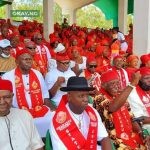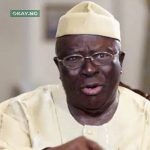Renowned investigative journalist David Hundeyin has criticized the recently released memoir of former Nigerian military ruler, General Ibrahim Badamasi Babangida (IBB), stating that it offers no new insight into historical events.
Hundeyin made his position known through a post on his official X (formerly Twitter) account while responding to a discussion on the book’s content.
Hundeyin’s remarks came after a user questioned his stance on the memoir, pointing out that he had previously affirmed that the January 1966 coup was not an “Igbo coup,” yet now referred to Babangida’s book as “filled with lies.”
The user implied that by discrediting the memoir, Hundeyin might inadvertently reinforce the narrative of those who continue to insist on an ethnic motive behind the coup.
Here’s a grammatically correct version of your sentence with improved clarity:
“I saw that you said in one of your posts that it was not an Igbo coup. Here, you are saying the book is filled with lies. Don’t you think you’re indirectly telling the demons that have insisted it is an Igbo coup—even when their father might not have even been born then—to continue with their wicked take?”
Responding to the claim, Hundeyin dismissed the idea that Babangida’s book should be celebrated for stating what was already a well-documented fact.
“If IBB wrote that 2+2 is 4 in his book, why should he be celebrated for that?” he asked, suggesting that the former military leader was merely reiterating an established truth rather than providing any groundbreaking revelations.
The journalist further emphasized that the notion that the 1966 coup was not an ethnic conspiracy had long been accessible to anyone willing to examine historical records.
“If you needed IBB’s 369 pages of verbose nothing to know that the Jan 1966 coup wasn’t an ‘Igbo coup,’ then you’re not even an honest person,” he wrote, criticizing those who act as though Babangida’s memoir had shed new light on the subject.
Hundeyin also pointed out that critical historical accounts on the 1966 coup had been available for decades.
He referenced the book Why We Struck, written by Major Adewale Ademoyega, one of the key figures in the coup, which provided first hand insights into the motivations behind the military takeover.
“‘Why We Struck’ has literally been available for decades,” he stated, implying that anyone seeking an accurate understanding of the events would have found the information readily accessible long before the release of Babangida’s memoir.







